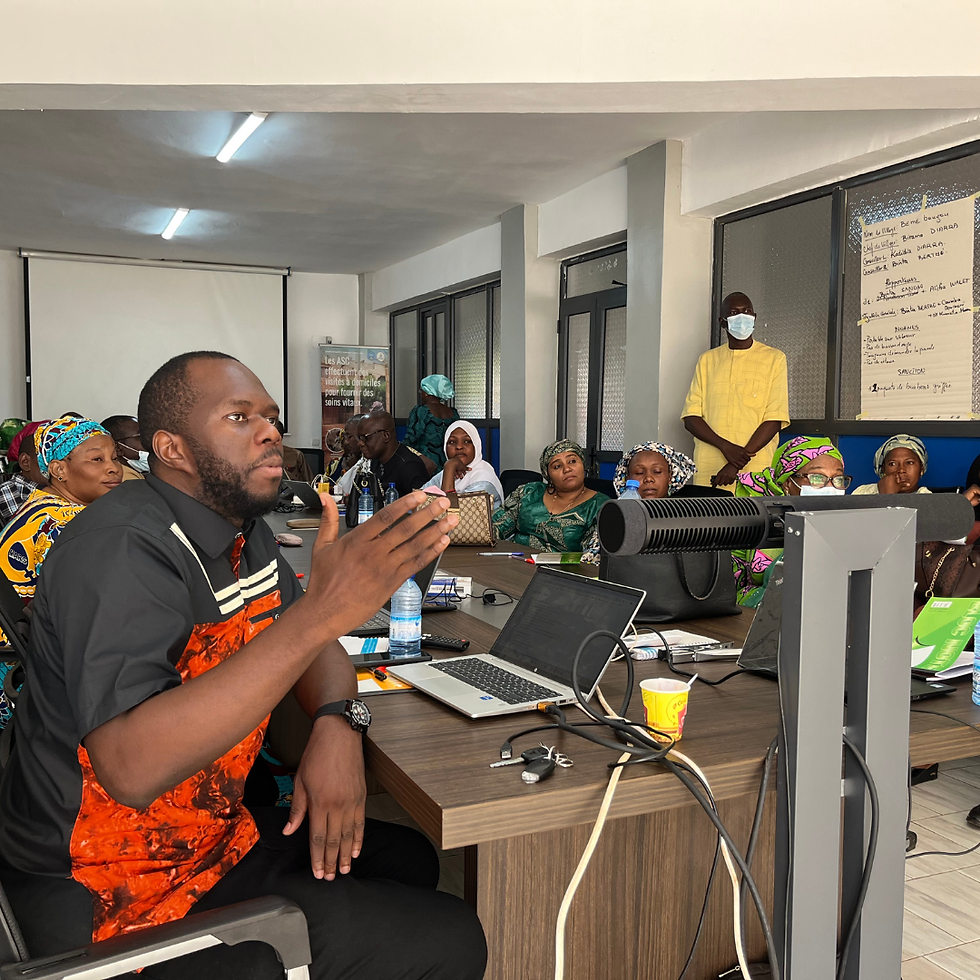Precision in Practice: Transforming Health Outcomes with Every Prescription
- Muso

- Nov 10, 2025
- 2 min read
In many health systems around the world, the overuse and misuse of medications, particularly antibiotics, pose serious threats to patient safety, increase the risk of drug resistance, and strain already limited resources. Evidence-based prescribing ensures that patients receive the right medications, in the right doses, only when truly necessary. This practice both improves health outcomes and promotes long-term sustainability by reducing unnecessary medical costs and combating the rise of antimicrobial resistance.

As part of its Clinical Quality Improvement program, Muso has organized, since the beginning of the year, a series of trainings on Evidence-Based Prescribing in Mali and Côte d’Ivoire. In Mali, sessions were held in Bamako and Bankass during the first and third quarters, while in Côte d’Ivoire, they took place in Adzopé and Madinani during the second quarter. These trainings aim to strengthen the capacity of frontline healthcare providers in evidence-based prescribing, complementing the interventions carried out in Muso’s partner health centers.
In Bankass, this initiative was launched across all eight of Muso’s partner community health centers in Q3. It aims to promote the responsible and clinically justified use of medications, ensuring patients receive only what they truly need, while also supporting the efficient use of health system capacity. Muso has launched the initiative in the rural communes of Dimbal, Kani Bonzon, Koulogon and Lessagou, where more than 162,000 people are impacted.
Frontline health providers at Muso partner centers receive ongoing training and mentorship from the organization’s Learning & Innovation team. Through regular clinical supervision visits, trainers use a dedicated observation grid to assess prescribing practices and offer targeted, actionable feedback to improve care quality and reduce waste.
The training equips providers to promote prescribing practices aligned with recommended best practice - for instance, the number of medications per prescription should not exceed three products and the proportion of antibiotics should not exceed 30% of all medications prescribed.
These metrics help us evaluate whether prescribing practices are becoming more rational and aligned with evidence-based standards, ultimately contributing to better patient outcomes and more efficient use of resources.
This integrated approach is built on two pillars: monthly coaching sessions and ongoing training for providers on evidence-based prescribing practices and therapeutic protocols. The goal is clear: to ensure that each prescription meets the patient’s actual clinical needs, while promoting the responsible and efficient use of medicines.
Together with our partners, we will continue to develop innovative strategies that strengthen community health systems - making them more effective, sustainable, and equitable - so that every patient receives high-quality care grounded in the best available clinical evidence.



Comments